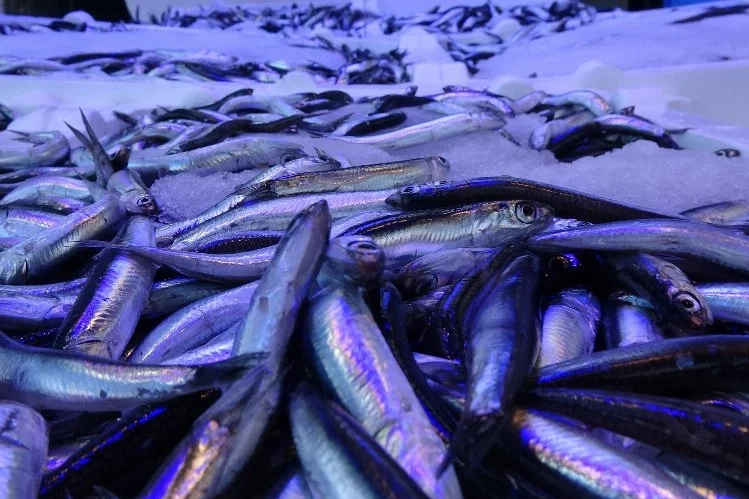During the January-February period of this year, Turkey exported 577,463 kilograms of anchovies to 18 countries, generating $2,119,896 in foreign currency.

During the January-February period of this year, anchovy exports to 18 countries nationwide amounted to 577,463 kilograms, generating $2,119,896 in foreign currency. The highest anchovy exports were made to Belgium with $524,936, followed by the United States with $401,109, and France with $368,287, whereas during the same period last year, exports worth $1,569,373 were made to 19 countries for the equivalent of $303,752.
Ahmet Hamdi Gürdoğan, Vice President of the Eastern Black Sea Exporters' Association (DKİB), commented on the matter, stating that in addition to exporting cleaned anchovies, they have also begun exporting them as canned goods. Gürdoğan noted that this season's anchovy exports have been more productive compared to the previous season, but they do not expect any further activity in anchovy exports due to the fishing ban starting on April 15th.
Gürdoğan expressed a 90% increase in anchovy exports in terms of quantity, stating, "In the January-February period of 2024, anchovy exports yielded around $2 million. In terms of value, there was a 35% increase, and in terms of quantity, there was a 90% increase. In 2023, the value of anchovy exports was $1.569 million, with a quantity of 303,752 kilograms. Anchovy exports are mainly made to the United States, the EU Germany, Belgium, and other countries, showing better performance in terms of yield compared to last year. With the fishing ban starting on April 15th, we do not expect any further activity in anchovy exports."
"We don't want the fishing season to start early"
Gürdoğan emphasized their preference for a later start to the anchovy fishing season, taking into account the size of the fish. He said, "We want to underline the importance of starting the season later, not earlier, considering the size of the anchovies caught. If we want to preserve the existing anchovy stocks for future generations, we need to play with fishing dates. Especially representatives of sectors relying on fishing mention that they go to countries like Africa, Mauritania, because they cannot find enough fish. Therefore, to make more efficient use of our stocks, we need to focus on the cultivation of small fish called Gulf fishing. For example, we should start working on raising other fish species, such as bluefish, through practices at the KTU Faculty of Marine Sciences, and initiate efforts to obtain value-added products by raising them using systems similar to those in Japan's peninsulas and deltas. This is very common in Japan and Norway. We simply catch fish in the sea as they are; we want efforts to start on raising them. "
Gürdoğan also mentioned that they have started to send anchovies as cleaned and canned products, stating, "We also send anchovies cleaned and canned. Now, we have started to send them as canned products as well. Therefore, there is an increase in the numbers because they are sent as value-added products. When we integrate into the global systems, in the long term, they should be turned into durable consumer goods such as canned and frozen products. Therefore, we observe an increase in quantity and exports when we send them to distant places with the cold chain, realizing that it is much more profitable."